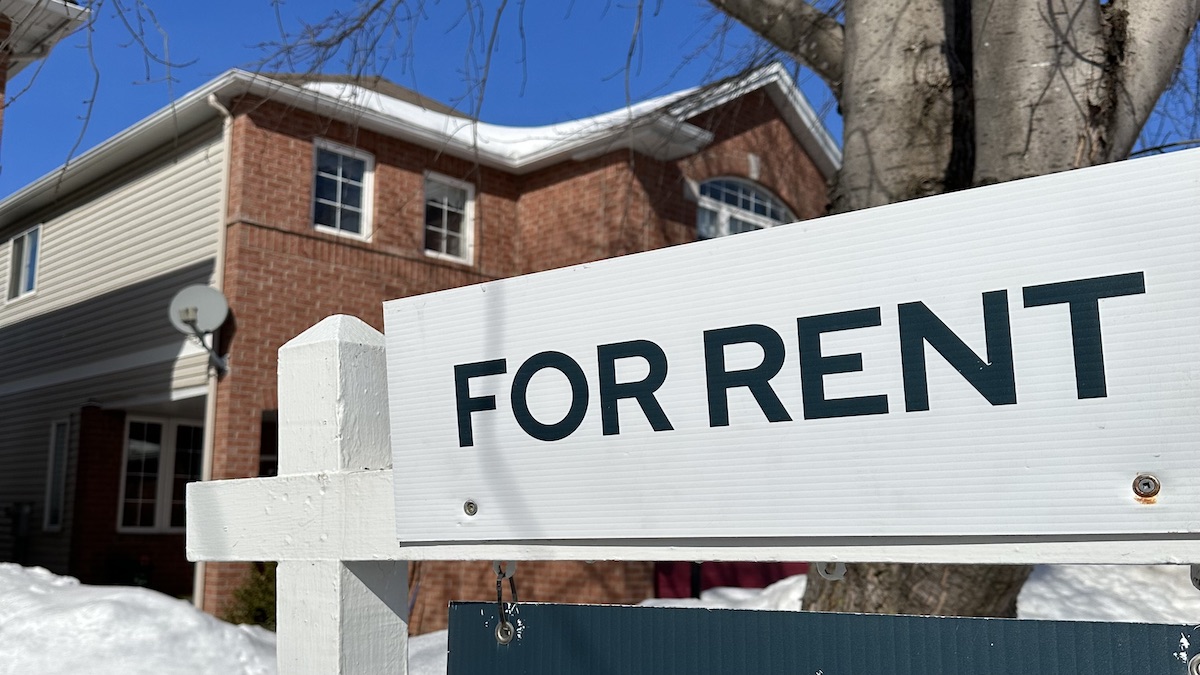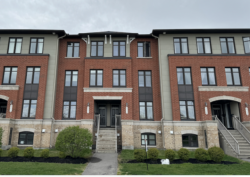Affordable housing advocates are urging the City of Ottawa to approve a tenant defence fund as a way to ensure people facing sudden rent increases can stay in their homes.
There are no programs in Ottawa offering free legal representation for tenants facing above-guideline increases (AGI) in rent, where a landlord raises the rent above the limit set by the province.
But with the skyrocketing rent increases in Ottawa, Sharon Katz, a member of Ottawa and Gatineau ACORN, an independent national organization of low-and moderate-income families, told city councillors at a meeting of the Community Services committee on Oct. 24 that a tenant defence fund could be an important tool to help prevent tenants from becoming homeless when facing eviction.
“We believe that this is an urgent priority because it is happening all the time to our members and to other tenants across the city,” said Katz.
“We are losing seven units of affordable housing in the private market for every one unit of social housing that’s being built. Renovictions, ‘demovictions’ and AGIs are huge contributors to the loss of affordable housing.”
Katz said when tenants go before the Ontario Landlord and Tenant Board to defend themselves, they are often without legal representation, which makes the process a lot more difficult for them. They face major barriers including the high cost of legal representation, complicated forms, lack of knowledge of tenant rights and the legal system and limited availability of and restrictions on free legal resources.
Katz said a tenant defence fund would help provide legal information and legal representation. She argued the city should play an active role in outreach to inform tenants about their rights and the services they could use.
“It’s mainly the people who don’t know the system that will get victimized,” said Katz.
In 1999, a Tenant Defence Fund, now called the Tenant Support Program, was established in Toronto, aiming to provide funds to tenant groups for a range of activities, including disputing an AGI application, hiring legal representation to dispute an AGI application, and hiring expert advice to significantly support the tenant group in a dispute.
A similar program started in Hamilton in 2019. An Ottawa city staff report found the Hamilton program “has been highly successful, with a 100 per cent success rate at LTB for
AGI applications and over 80 per cent for N13 notices.” N13 notices refer to “renovictions.”
John Dickie, the chair of the Eastern Ontario Landlord Organization, says his group opposes such a defence fund.
Dickie says AGIs are essential to the Ontario rental housing system because that the annual rent increase guideline does not provide a sufficient sum to cover major repairs.
“Tenants do not need protections against the AGIs, but landlords, in fact, need AGIs to be able to afford to keep buildings in good condition and improve them to today’s standard,” said Dickie.
Despite that argument, Bay Ward Coun. Theresa Kanavagh said she believes there should be a mechanism to help support tenants.
“Lots of resources that have been used in the past, such as legal services, were cut back in the past by the province,” said Kanavagh. “And this is where we should concentrate our effort to help tenants defend themselves.”
The committee is to consider this issue further at the Nov. 28 meeting.




